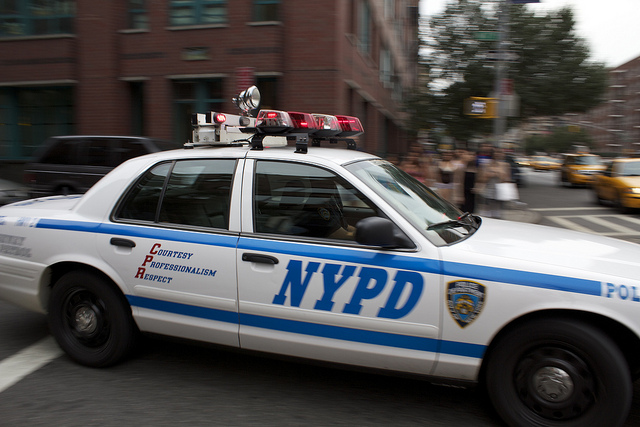Publicly employed police officers are often contracted to work private events—from keeping the peace at retail stores around Christmas-time, to keeping an eye on the crowds at music festivals.
But an investigation by a New York newspaper found that several police departments in the state are letting the overtime racked up at private events count towards an officer’s public pension—a practice which the state Comptroller’s Office says is not allowed.
From the Times-Union:
The state Comptroller’s Office says overtime reimbursed by a private company does not count toward an officer’s pension benefit.
But the Times Union found that several Capital Region police departments — including those in Colonie, Schenectady and Troy — report private duty overtime to the retirement system.
“I think a lot of people might be surprised to the extent with which this happens around the state,” said E.J. McMahon, president of Empire Center for Public Policy, an Albany think tank. “You can actually bolster your pension with time spent working in uniform on private time.”
Taxpayers should care about the practice, McMahon said, because pensions are lifelong payments backed by taxpayer dollars.
The legality of using private duty details as part of the pension calculation is murky. Several retirees are appealing the comptroller’s position in state Supreme Court.
The retirement of a Guilderland police officer who worked overtime at Crossgates Mall brought the issue to the attention of many Capital Region police chiefs. As a result, Guilderland stopped reporting private work to the retirement system and, last month, Bethlehem prohibited officers from working the jobs.
Albany and Saratoga Springs also comply with the comptroller’s view that private overtime is not pension eligible.
But several high-ranking police officials have publicly raised concerns about whether its fair to disallow private jobs when calculating pension benefits. From the Times-Union:
“Anytime a man or woman is in police uniform, they are on police duty, period,” Colonie Police Chief Steven Heider said.
Heider considers the officers on-duty, accountable to the police department and exposed to the dangers of police work.
Last year, Colonie police collected about $120,000 in reimbursements from private entities for police details, which Heider said are assigned by rotation. About 40 percent came from patrols at Colonie Center mall.
The town reported the wages to the retirement system as pension eligible.
Colonie requested guidance from the comptroller about whether to report the wages as pension eligible, but never heard back, Heider said. If the comptroller advises Colonie to stop, the town will, he said.
Of the seven police departments in upstate New York’s Capital Region, three departments allow private duty overtime to count toward public pensions. Officers in those departments have racked up nearly $200,000 in private duty overtime last year, according to the Times-Union investigation.
Photo by Giacomo Barbaro via Flickr CC License
